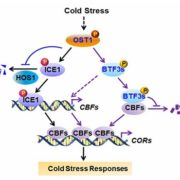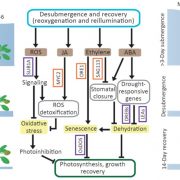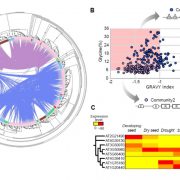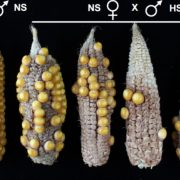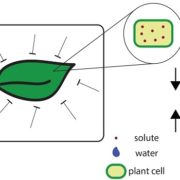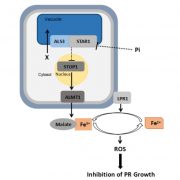Malate-dependent Fe accumulation is a critical checkpoint in the root developmental response to low phosphate
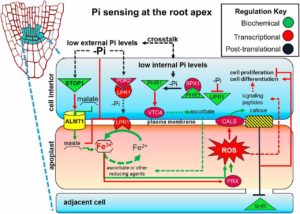 Phosphate is a limiting nutrient in soil and not very mobile, so roots respond strongly to low Pi soils by the cessation of elongation of the primary root with accompanying stimulation of lateral root and root hair production. Previously, the accumulation of iron (Fe3+) in the apoplast of root meristem cells with accompanying callose deposition was shown to contribute to growth arrest. Javier Mora-Macías et al. used a genetic approach to identify low-Pi insensitive (lpi) mutants, in which primary root growth does not arrest. They identified mutations in two genes involved in malate efflux (STOP1 and ALMT1) as contributing to this process; malate efflux has previously been shown to confer protection against toxic levels of aluminum in the soil. These results highlight the importance of oranic acid extrusion in multiple root nutrient responses. Proc. Natl. Acad. Sci. USA 10.1073/pnas.1701952114
Phosphate is a limiting nutrient in soil and not very mobile, so roots respond strongly to low Pi soils by the cessation of elongation of the primary root with accompanying stimulation of lateral root and root hair production. Previously, the accumulation of iron (Fe3+) in the apoplast of root meristem cells with accompanying callose deposition was shown to contribute to growth arrest. Javier Mora-Macías et al. used a genetic approach to identify low-Pi insensitive (lpi) mutants, in which primary root growth does not arrest. They identified mutations in two genes involved in malate efflux (STOP1 and ALMT1) as contributing to this process; malate efflux has previously been shown to confer protection against toxic levels of aluminum in the soil. These results highlight the importance of oranic acid extrusion in multiple root nutrient responses. Proc. Natl. Acad. Sci. USA 10.1073/pnas.1701952114


